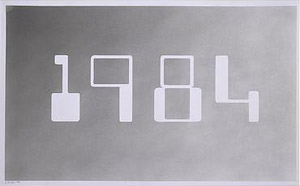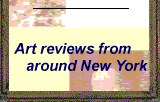Call the Cops
John Haberin New York City
Diane Ravitch: The Language Police
It is never easy being the language police. You tap the phones, only to hear countless voices. You move in for the arrest, and the suspects themselves have already changed the law. When it comes to language, poets may be unacknowledged legislators, but I, too, am the lower house, and even dictionaries cannot agree on its proceedings. 
According to Diane Ravitch, however, the police are everywhere, and they have found a dangerously effective strategy: silence discordant voices early, while they are learning to speak. Language may not have cleaned up its act, as anyone who has listened to teenagers knows. The language of elementary and high-school textbooks, however, has been reduced to "mush."
Clear skies and clouded history
In The Language Police, Ravitch asks how pressure groups strip texts of controversial subjects—and the very words to describe them. The right has banned anything that might disturb its complacency. Out go evolution, of course, and such perceived slights to religion as the magic of fairy tales, but also unemployment, poverty, and racism. Meanwhile political correctness has targeted stereotypes so fiercely that anything even remotely demeaning hits the dust. Out go any depictions of female nurses or, in turn, male lawyers. Out go such common words as snowman.
If this sounds ridiculous, Ravitch believes that it leads to a still more serious loss of public discourse. It eliminates or bowdlerizes the classics, and it leaves an idealized history in which no one gets hurt and every culture contributes equally. It discourages crucial critical thinking, and it wipes away the past. Without that appreciation of America and its past, she writes, education cannot do its most essential job, to help society "establish civilized norms grounded in the rule of law." But is Ravitch truly defending budding thinkers from the thought police, or is she playing cops and robbers herself?
Ravitch, a professor of education at New York University, has long been the conservative that liberals would love to invite to the party. In fact, they have. A senior fellow at the Bookings Institution, she has served under two presidents, and The Language Police begins with her efforts in the Clinton administration to help create national assessment standards. Left Back, a history of school reform, concludes modestly that one should distrust reform movements of any sort, perhaps even hers.
She supplies a convincing view of the process that has given pressure groups power. Textbooks are the curriculum, because teachers have little training in the subjects they teach, and adoptions take place at the state level, where politics matters more than educational achievement. Mergers concentrate publishing in fewer and fewer hands. No wonder school textbooks are committee products—"large, beautifully packaged, and incoherent."
Ravitch sees hope only in sunlight, and she intends her book as a window. She has accordingly written a short, polemical volume, including "A Glossary of Banned Words" at the end and an annotated literature curriculum "for home or school." She also advocates better teachers, and she would encourage competition by leaving textbook adoptions to the schools.
Anyone who has looked at textbooks will find her story familiar, and anyone committed to intellectual inquiry will care. Decades of critical theory have shown that thought and culture live only in language. When opponents call themselves pro-choice or pro-life, they are staking out real-world positions. When the president calls a reduction in pollution standards Clear Skies, who can object to appeals to George Orwell?
Sivilization and its discontents
Orwell might. He teaches that thought control has to do with mistaking words for reality. When Ravitch equates political correctness with censoring evolution—and when she devotes her book mostly to the first—alarm bells sound. I, for one, hardly care whether books term Alexander Hamilton a founding father or framer, a term that Hamilton himself used often and with pride, so long as they teach about him and what he framed. Less-hushed language might even restore what Gordon Wood called the radicalism of the American Revolution.
Orwell might also raise questions about any claim to defend a value-neutral language for literature and history. If words matter that much, one must ask what position Ravitch takes. In her appeal to "civilized norms," it is a conservative one indeed. She identifies tradition with "a rich and positive immersion in the Anglo-American heritage" and quotes with approval older texts' paeans to a land that "shines among the nations." Her reading list has few books that she describes conservatives as having attacked—and fewer still that betray pessimism or anxiety.
Not surprisingly, she has to adopt some rather Orwellian tactics of her own. Only a static view of language can contain a monolithic tradition. She defends stereotypes, on the grounds that, after all, some police are Irish. And no doubt some Jews have high positions in Hollywood and banking, but her apology amounts at best to a recipe for sitcoms.
Ravitch joins the language police when she refuses to accept that usage and ideas change. Take her glossary. At thirty-six pages, it looks ominous, but it includes any term any publisher has cut. It includes the routine decisions of editorial style sheets and words like retard. In such a context, the very word banned is newspeak.
She returns four times to assaults on words ending in -man. (For consistency, she should have called her book "The Language Policemen.") Any dictionary will describe how these are tending to disuse, not from radicals in power, but from how people write and speak. The U.S. government eliminated many such terms from its occupational guidelines decades ago (although not snowman). Indeed, once The Rights of Women followed The Rights of Man, the sense of man had already changed. As a Structuralist would say, it had become marked.
A real sunlight dialogue would look with skepticism on "competition" as cure to the consolidation of media power or to the grip of fundamentalism on school districts. It would back higher standards and better teachers with calls for at least one form of government interference, money. It would not so passionately embrace literature like Huckleberry Finn without a healthy distrust of those out to "sivilize" others. It would welcome debate over words and traditions, one that textbooks—and Ravitch as well—may not readily accept. As she says herself, "a free society is not free unless it tolerates offensive words and unpopular opinions."

The Language Police: How Pressure Groups Restrict What Students Learn by Diane Ravitch was published by Knopf in 2003 and in a Vintage Books edition in 2004. This review first appeared in a slightly different form in the Journal of Interdisciplinary Studies 17 (October 2005). It therefore lacks my usual range of hyperlinks to related essays in review—in particular, on neoconservative and traditional views of literature, art, Romanticism, Modernism, arts funding, and art-world politics.




